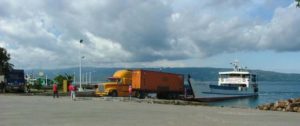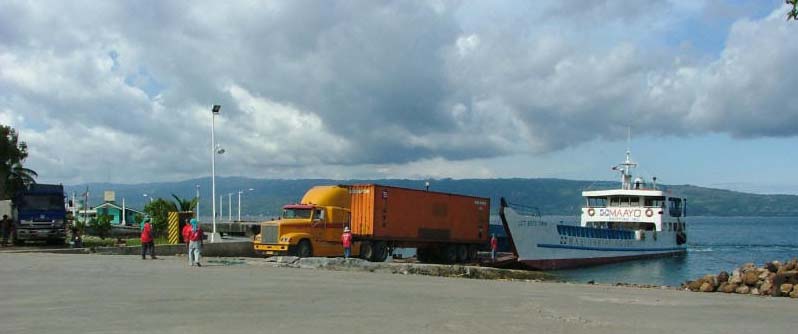 Maritime Industry Authority (Marina) administrator Dr. Maximo Mejia, Jr. is offering up a list of priority programs for the next head of the agency.
Maritime Industry Authority (Marina) administrator Dr. Maximo Mejia, Jr. is offering up a list of priority programs for the next head of the agency.
President-elect Rodrigo Duterte has yet to appoint a replacement for Mejia, who will step down from office on June 30 along with other government officials appointed by outgoing President Benigno Aquino III.
In a chance interview on the sidelines of the recent Philippines Marine Conference 2016, Mejia told PortCalls one of the top priorities should be the continued modernization of the country’s roll-on/roll-off (RoRo) vessels.
He said Marina has already started fleet modernization by phasing out wooden-hulled vessels. The authority recently issued Marina Circular (MC) No. 2016-02, which provides revised rules for the phase-out of wooden-hulled passenger vessels in domestic shipping. The circular took effect on June 11.
Mejia said they are targeting a younger fleet, although he clarified this does not automatically make old ships no good. But in general, he said, “it has been shown the older the fleet, the less the level of safety.”
He said Marina has yet to set a target age for the country’s fleet, but they hope to see the current average age of 30 years reduced to 20 or even 15 years. As of June 2015, there were 23,661 domestic vessels in the country, of which 11,368 were merchant fleet and 12,293 fishing vessels.
Another priority is the push for a more attractive ship registry.
Mejia noted that reforming the current registry system presents many challenges that require legislation. Marina is now preparing a bill to reform the country’s ship registry for submission to the incoming 17th Congress.
Another priority legislation is the expansion of incentives in the maritime sector. In this regard, a bill will be submitted to the incoming Congress to extend and expand incentives under Republic Act (RA) 9295 or the Domestic Shipping Development Act of 2004, according to Marina deputy administrator for Operations Atty. Gloria Banas, during the same conference.
This, as some incentives under the law–such as exemption from value-added tax for the importation of vessels of domestic shipping operators–have already expired.
Mejia said the next Marina administrator should also prioritize implementation of the International Convention on Standards of Training, Certification and Watchkeeping for Seafarers (STCW). In 2014, President Benigno Aquino III signed RA 10635 which consolidates all STCW functions under Marina.
Mejia said the next Marina chief should likewise continue “addressing the remaining issues” which include monitoring schools, reclassifying higher maritime education institutions, and shepherding the K-12 education program of the government.
Aside from improving education standards, Mejia said professionalizing and training of evaluators should be pursued.
In a memorandum signed by Mejia in June 2015, Marina said the maritime industry—as an essential logistics and services support sector with the mission to promote sustained economic growth and competitiveness—is committed to become by 2016 “a premiere maritime administration in Southeast Asia, propelling the Philippine maritime industry to global competitiveness.”
2015 accomplishments
According to the authority’s 2015 accomplishment report, Marina surpassed by a good margin its target revenues while also beating target key performance indicators for the year.
Collections from operations and services amounted to P983.728 million, higher by 12.7% than its P872.826-million target, and 37.8% more than the P713.657 million earned in 2014.
The same report noted that 9,981 ship registrations were recorded, 36.8% higher than the 7,296 target and 23.7% up from 2014’s registration total of 8,071.
The agency issued a total of 43,868 certificates, permits, and licenses last year, 28.6% more than the 34,119 target for the year, but 27% less than the 60,104 registered in 2014.
Last year, Marina issued 1,249 certificates of public convenience (CPCs) to shipping companies, 71% up from the target of 730 firms and 18% higher than the 1,059 CPCs granted in 2014.
Last year too was the first full year that Marina implemented its special processing window/express lane (SPWEL) that speeds up the processing of permits for vessel imports and encourages investments in the local shipping industry. SPWEL was made a permanent facility in late 2014. – Roumina Pablo





